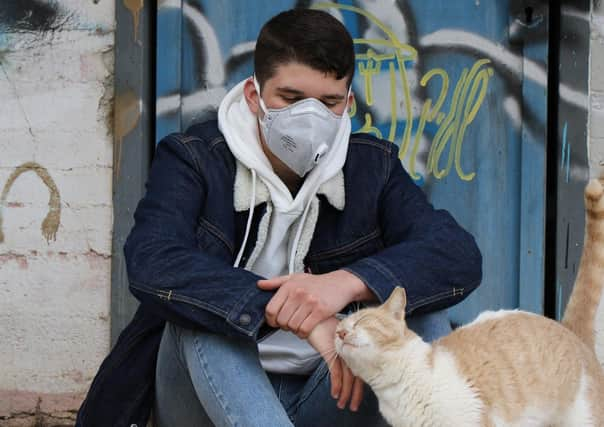Study shows the level of wellbeing amongst Scotland’s teenagers


This week the Scottish Government published the SALUS Mental Wellbeing report, which surveyed schools pupils in S2 and S4 between September 2018 and April 2019.
More than 21,000 students took part in the study which explored various topics including emotional and behavioural problems, peer problems, caring issues, family relationships and attitudes towards school.
Advertisement
Hide AdAdvertisement
Hide AdThe questions about mental health and wellbeing were the same as when the study was last conducted with 13 and 15-year-olds in 2015.
The study’s key findings showed that since 2010, the proportion of pupils with borderline or abnormal Strengths and Difficulties Questionnaire (SDQ) scores had continually risen, while the proportion of pupils with normal scores has fallen.
In addition, 15-year-old girls continued to have the highest rate of borderline or abnormal SDQ scores, a trend since 2010.
The study also found that there was a clear link between deprivation and emotional and behavioural problems. Pupils who lived in the least deprived areas were less likely than those in the most deprived areas to have a borderline or abnormal SDQ score.
Advertisement
Hide AdAdvertisement
Hide AdSimilarly, pupils who reported that they had a long-term illness or disability or were young carers had lower levels of wellbeing.
The study also found the students who do not like school at all were more than three times likely to have a borderline or abnormal SDQ score.
In response Scotland’s mental health minister, Clare Haughey, said: “We want all young people to be able to be supported to have good mental wellbeing.
“Research shows there are a number of drivers that may negatively impact mental health in teenagers, including social media use and disrupted sleep, among other issues.
Advertisement
Hide AdAdvertisement
Hide Ad“In today’s world, technology allows friendships to thrive and can help young people find the help and support for issues they are facing. But it’s helpful for us all to be aware of our use of social media and the time we are spending online.
“When social media and the online world starts to negatively affect our mood, it’s important to know how to take care of ourselves. That’s why we published advice about this for young people, which is specific to Scotland and has been created by the Scottish Youth Parliament and the Children’s Parliament.
“Supporting children and young people’s mental health and wellbeing has been even more important during the Covid-19 outbreak, with schools closing and restrictions on everyday life. Child and Adolescent Mental Health Services (CAMHS) continue to support children and young people in need of specialist support, although there will be adjustments in how that is delivered to accommodate coronavirus restrictions.
“We’ve also provided £105,000 to support Young Scot to develop enhanced digital content and resources to provide them with information, advice and signposting to support their mental health and wellbeing during, and after, the current lockdown.”
Comment Guidelines
National World encourages reader discussion on our stories. User feedback, insights and back-and-forth exchanges add a rich layer of context to reporting. Please review our Community Guidelines before commenting.